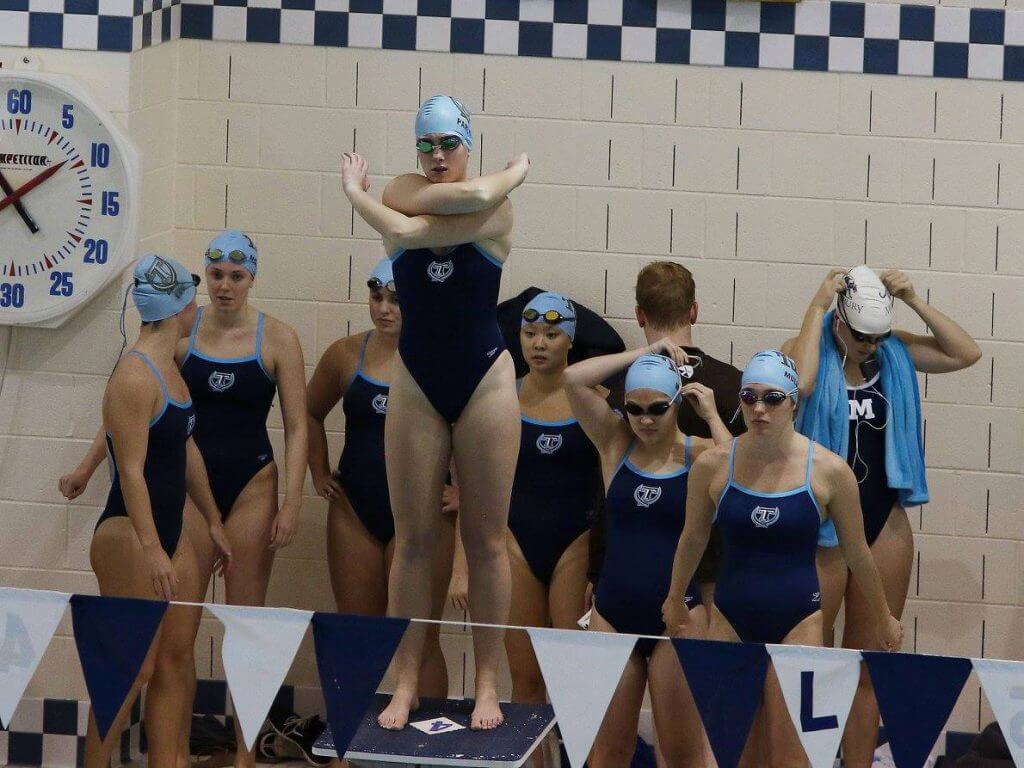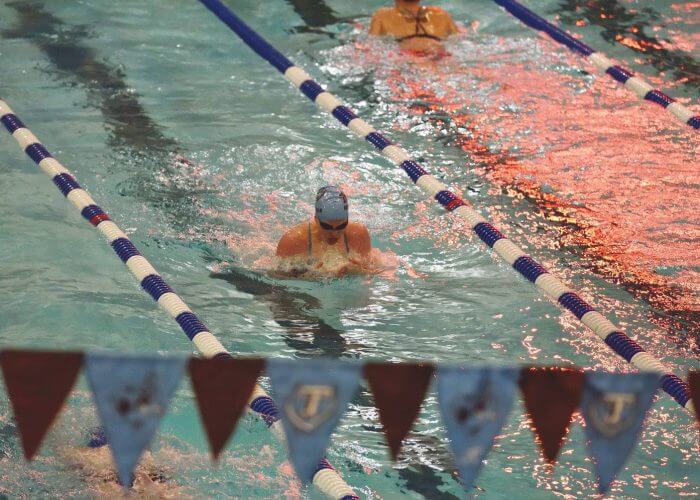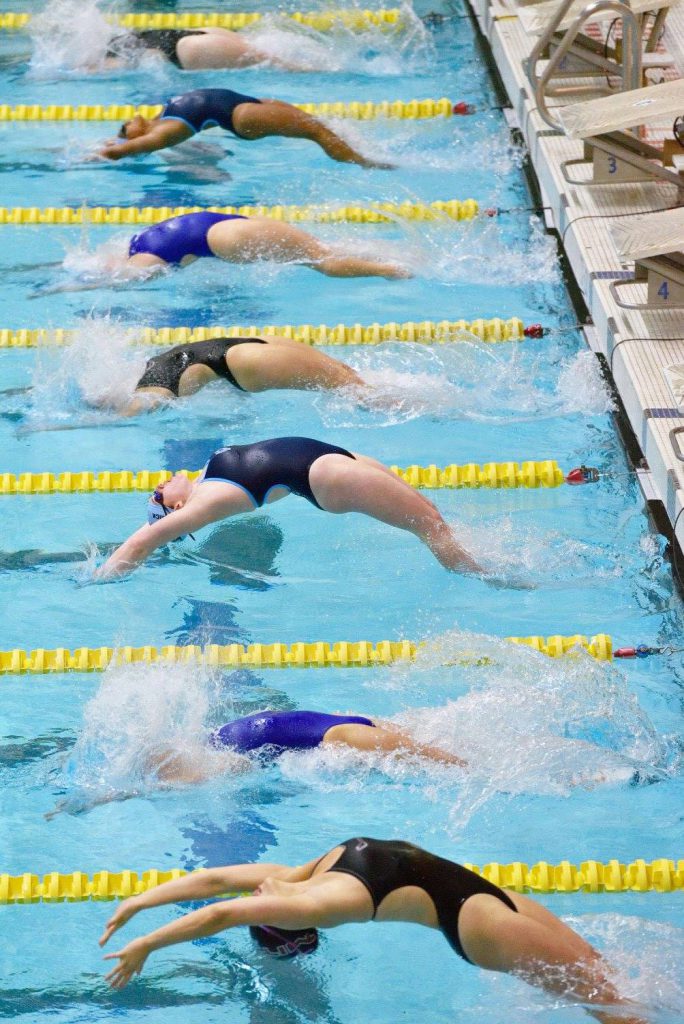Year-Round to Seasonal: A DIII Swimmer’s Adjustment

By Ailish Dougherty, Swimming World College Intern.
Is a four-month swim season a blessing or a curse? For many DIII college swimmers, the adjustment from a year-round club swimming season to a winter-only season can be jarring. Because training is not necessarily mandated during the spring and summer months, it can be especially challenging for new college swimmers to stay in shape and motivated during their first extended off-season.
High school club swimmers are required to train constantly for about an 11-month season, so not having a structured training plan during the spring and summer in college puts the responsibility, for the first time, on the swimmers themselves to stay physically fit. There is no official punishment for not swimming during the off-season — except for the pain of returning to the pool for pre-season after a lazy summer — and this consequence can seem distant and unthreatening in February when the season ends.
Tufts junior Neil Spazzarini reveals a struggle that many swimmers face: “I couldn’t make myself practice early in the morning during the summer. All I swam all summer was 800 yards during a triathlon – I felt awful in the fall because I was so out of shape.”
When there are limited resources or facilities, a lack of support, or no easy access to practice, it is definitely difficult to stay driven and follow through on commitments.

Photo Courtesy: David DeCortin
There are so many reasons not to swim at a high level over the summer, but what exactly drives swimmers to train hard over the summer?
Tufts sprinter Jess Lee was motivated by “the fact that there were no rules – that I didn’t have to prove anything to anyone.” What can be galvanizing to one swimmer, however, can be discouraging for another. Without the presence of coaches or sometimes even teammates to hold a swimmer accountable or to demand excellence, it can turn into a steep slope of laziness and negligence.
Head coach of the Tufts University swimming and diving program, Adam Hoyt, focuses on the spring as a time to “[create] a team environment and culture where off-season training remains something our team expects of each other and enjoys.” The Tufts team uses the extra free time to, yes, catch up on sleep and recover mentally, but also to “focus on cross training, philanthropic events, and team bonding activities.”
Tactics like these are especially helpful, as they remind athletes that they are members of a team, to which they have a loyalty and responsibility. It helps swimmers remember what they train for. The off-season is all about finding a balance between recovery and productive physical activity.
A training partner can be a valuable asset during the off-season. As Tufts IMer Sydney Nasson puts it, “I end up staying longer and doing more than I thought I would do when there are other people swimming with me. It’s all about finding someone who will hold you accountable and who will push you to do one more set than you thought you could.”
Other ways to stay active during the spring and summer include “setting an end-goal for the off-season. For example, I signed up for a big meet in Florida at the beginning of the summer and I knew I had to prepare for it in order to be able to go and not embarrass myself,” Sydney candidly said.
Committing to a specific goal during the off-season — something like improving turn technique or backstroke turnover — can keep you focused and give your training purpose.

Photo Courtesy: David DeCortin
Tufts distance swimmer Zoe Gregorace encompassed the mental benefit of a shorter season when she said, “I love swimming so much more when I’m not doing it 24/7.” A four-month season doesn’t drag on like year-round swimming often can, so it is easier to feel refreshed and motivated at the beginning of the season.
The off-season functions as the reset button. Overall, the short season of a DIII swimmer is a blessing because swimmers know that they only have four months to prepare for championships and compete, so they see how imperative it is to hit the ground running. Coach Hoyt finds that when preseason finally rolls around, “all of our team members are fired up to get ready for the season.” Why? Because they know that every day counts.
All commentaries are the opinion of the author and do not necessarily reflect the views of Swimming World Magazine nor its staff.




Hmm it appears like your site ate my first comment (it was super long) so I guess I’ll just sum it up what I
wrote and say, I’m thoroughly enjoying your blog. I as
well am an aspiring blog blogger but I’m still new to the whole
thing. Do you have any helpful hints for beginner blog writers?
I’d really appreciate it.